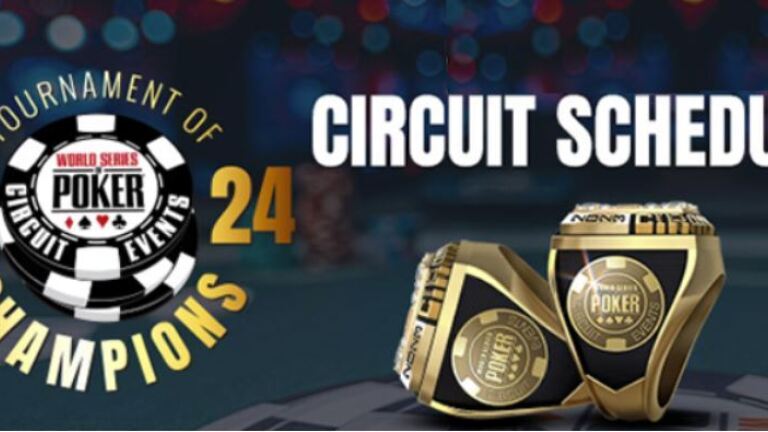5 tips when you should consider bluffing!
As you already know, bluffing is a fundamental part of the game of poker. In today's article, we'll examine factors when electing to bluff. We'll focus primarily on river spots because you'll either have a bluffing hand or a value-betting hand on this street. The situation is a bit different on other streets since your hand will have a certain equity to improve. Besides, runouts might give you good bluffing opportunities later. Or, simply, it's a spot where range interaction works in a way that you can bet your entire range. So those situations can be considered semi-bluffs with more complex characteristics.

We cannot win at the showdown
Let's start with the most obvious to consider. Compare the situation when you arrive at the river with an 8-high to an occasion when you have an ace-high in the same spot.
In the first instance, it's highly improbable you'll win at the showdown. This is because your hand only beats unpaired 7-high or lower hands. Moreover, if you're out of position, these hands are also unlikely to check back for the same reason.
If you have an ace-high, you still might win the hand by having the stronger non-paired hand against a missed draw, for example. Each hand is different, and you'll need to read board texture and your opponents' hand strength based on the betting pattern.
Your opponent is a weak player/good target to bluff against

You can spot various weaknesses by paying attention at the table or using tracker tools. It would be best if you were looking for a combination of weak properties. The more you find in Villain's game, the better target will be to bluff against.
If your opponent is always looking for an excuse to fold or he has a low 'went to showdown' stat is a good sign. However, be careful with the latter; an aggressive player might have a low number for a different reason.
Low aggression makes an excellent opponent to bluff against, too. Of course, if you face a good opponent, there is always a possibility that they trap you or bluff you with an even worse hand. However, most players on low stakes and live games play their hands very straightforwardly, and you don't need to fear facing further aggression.
There is merit to facing an aggressive player on the river as well. If he is likely raising his strong hands earlier (and his bluffs) he'll arrive with a capped range to the river consisting almost exclusively of medium-strong hands. He'll always have a hard time to bluff catch in those situations.
Your actual hand
The hand you are holding is also essential in blocking or unblocking specific hands of your opponent's range. (Also, there are neutral hands from this perspective).
Naturally, it would be best if you elected a hand with good blockers. So how do you evaluate if your hand has good or bad blocking characteristics? First, define the strongest hands or the majority of the hands you think your opponent will call you. Then, if you hold one (or sometimes both) cards of that specific hand, it's a better blocker than a neutral hand because Villain will have fewer hands to call you with.
An example could be the following: we arrived at the river, the board is Ace-high, disconnected, and a flush draw missed. You think Villain will call you down with his strongest top pairs but might fold some medium-strength top pairs. His strongest ace in this spot is AQ and AJ. So if you have QJ, you found an excellent bluffing candidate.
In the same spot, if you have 56s, a low, missed flush draw, you naturally block hands your opponent auto folds (other missed flush draws). Besides that, you block possible mid-strength aces Villain would fold sometimes. Of course, it's unlikely to win with a 6-high; still, you must consider all the factors. With blocker and unblockers characteristics, we could be in better shape.
Favourable situation
Looking at the situation as a whole, there are good and bad bluffing spots. A good spot if you have all the nutted hands when your opponent doesn't. Those are the hands where you should put the most pressure on Villain.
The runout of the board can be another factor. You must be careful if the turn or river card changes the equities by a hefty margin. Unless you are the only one who could arrive with completed draws, Villain would raise strong hands earlier, or Villain didn't have EQ to call you earlier for the completed draws, etc.
Avoid situations where all the obvious draws have been missed, and your opponent has already called twice, indicating he has a decent hand to bluff catch with.
You can represent strong hands
Most beginners forget something fundamental when they try to bluff. Is the story credible to the opponent? Can we represent strong hands? Do we have many strong hands in our range that would play that specific betting line?
Just because you decide to bet three streets because that's what I'd do with aces, and now I'm "representing" them, doesn't mean your opponent will see the same way. Depending on many variables, the width of your preflop range, board texture, runout, your perceived aggression, etc., you don't represent a single hand. Moreover, sometimes the one you try to rep, you don't really have. For example, think about a straight-completing runout on 65J23. If you opened from UTG, what kind of 4 will you have which already bet two streets? Sure, sometimes you elect to bet an A4 or merge bluff a 54s or 44. The problem is that sometimes you don't even open them. How big part of your range will consist of a 4, then?
Again, think about the situation as a whole. Don't try to represent a hand you most likely won't even have.
Summary
When you consider bluffing (especially on the river), you need to evaluate the situation as a whole. The more factors are in your favour, the better the situation to bluff. If you cannot win at the showdown, that's the first sign you might need to bluff. Next, take into account your opponent's playing style. Is he happy to go to a showdown with marginal hands, or is he looking for excuses to fold? Then, what are the characteristics of your actual hand if you think about blockers and unblockers? Lastly, is it a good situation to bluff? Can you represent excellent hands when your opponent always has medium-strength holdings?
Sometimes all circumstances are good, but you get caught on a bluff. Either your opponent has a strong hand, or he makes a big mistake. Evaluate accordingly and adjust if necessary. On the other hand, sometimes the situation is not ideal; you still pull out a successful bluff because you wouldn't win at the showdown otherwise.
I hope you found this article interesting. Good luck in testing your new bluffing skills!




















